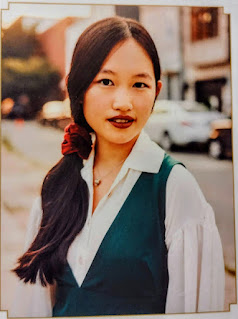By Emma Donoghue
- Pub Date: 2023
- Where I bought this book: Roebling Point Books, Covington, Ky.
- Why I bought this book: Donoghue is one of my go-to writers
********
Writing a work of historical fiction that closely hews to the truth about the time period and the people involved takes a lot of work and research, as well as imagination and writing skills. Donoghue nails it.
Eliza is the child of an English father and a mother from India. Her friend Lister is from Yorkshire, and is what was once called a tomboy -- daring, wild, and reluctant to conform to society's expectations and gender stereotypes. Both are orphans who live with male caretakers, and are shipped off to live in the Manor School for young ladies in York.
There's a sadness in this novel, born of two girls trying to navigate a world that refuses to accept them, and in which they cannot live happily. The structures set for them ignore their wants, needs, and desires. For Eliza, there is the added nuance of race -- her Indian heritage is clear in the color of her skin, and it influences every facet of her young life.
She is seen as neither English nor Indian; every time she tries to assert her Englishness, she is rejected as a half-breed, a child of colonialists, a girl that belongs neither here nor there. Lister finds her own rejections sort of thrilling; she can fall back on her supposed high class and the wealth of her family's holding in York.
We rarely know what is really happening. Some of the characters may be unreliable, or are holding back their reality. Situations change, and as the girls find love in each other, the world around them can be mystifying.
One metaphor comes from Mr. Tate, one of of the few male figures at the school, a teacher and husband of one of the mothers of the dormitory. Despite his talents as a musician and instructor, he finds only sadness in his work, despite the joy he brings to others.
Donoghue depends heavily on the time and place, the changing mores and structures of the Georgian period in Great Britain. Much in the tale is left to the reader's imagination, but it remains a thrilling and evocative read.




